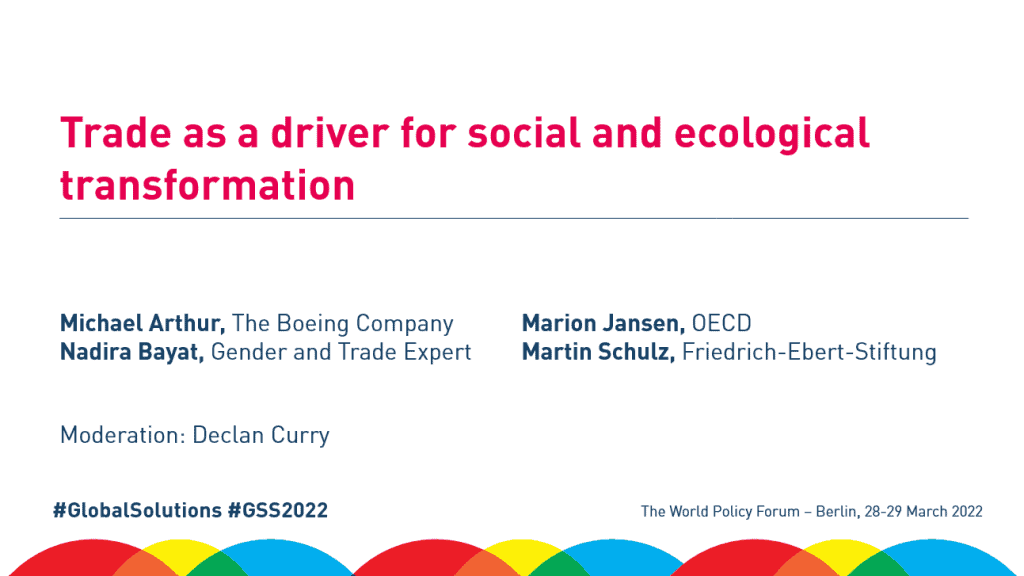Economic transformation
Summit 2022
Globalization and technological change have created much wealth in aggregate terms, but over the past decades have also been accompanied by inequality, social fragmentation and disempowerment. Furthermore, globalized production and international trade have significantly contributed to climate change, pollution and other environmental damages. The social and environmental consequences of production have been outsourced along with the work tasks and have become less and less visible to final consumers and governments. Together, rapid technological change and globalization have led to tensions in communities.
At the same time, we are witnessing a period of ‘slowbalisation’ and fragmentation in global trade. The economic consequences of the Covid19-pandemic and the impetus of major powers on geo-political interests have lead to an increasing decoupling of economies, with a new focus on strategic autonomy and diversification. In this climate, the war in Ukraine will only intensify debates on economic sanctions and anti-coercion instruments.
Given these powerful shifts in global trade, there is an urgent need for government policies and business strategies to shape trade so that it meets the needs of people and their communities. An inclusive, human-centric approach to trade can reset the objectives and yield benefits that will contribute to more sustainable benefits that go beyond pure economic value.? Last year, G7 leaders agreed “on the need for the world’s leading democratic nations to unite behind a shared vision to ensure the multilateral trading system is reformed, […], to be free and fair for all, more sustainable, resilient and responsive to the needs of global citizens.”
How can this vision be achieved in practice? What government policies and business strategies should be pursued to create a multilateral trading regime that promotes social well-being and that respects the natural world as a prerequisite for a decent life? How can voices and interests from the Global South be strengthened and the development agenda be revived? What concrete reforms are needed at the WTO, as well as at regional levels?






